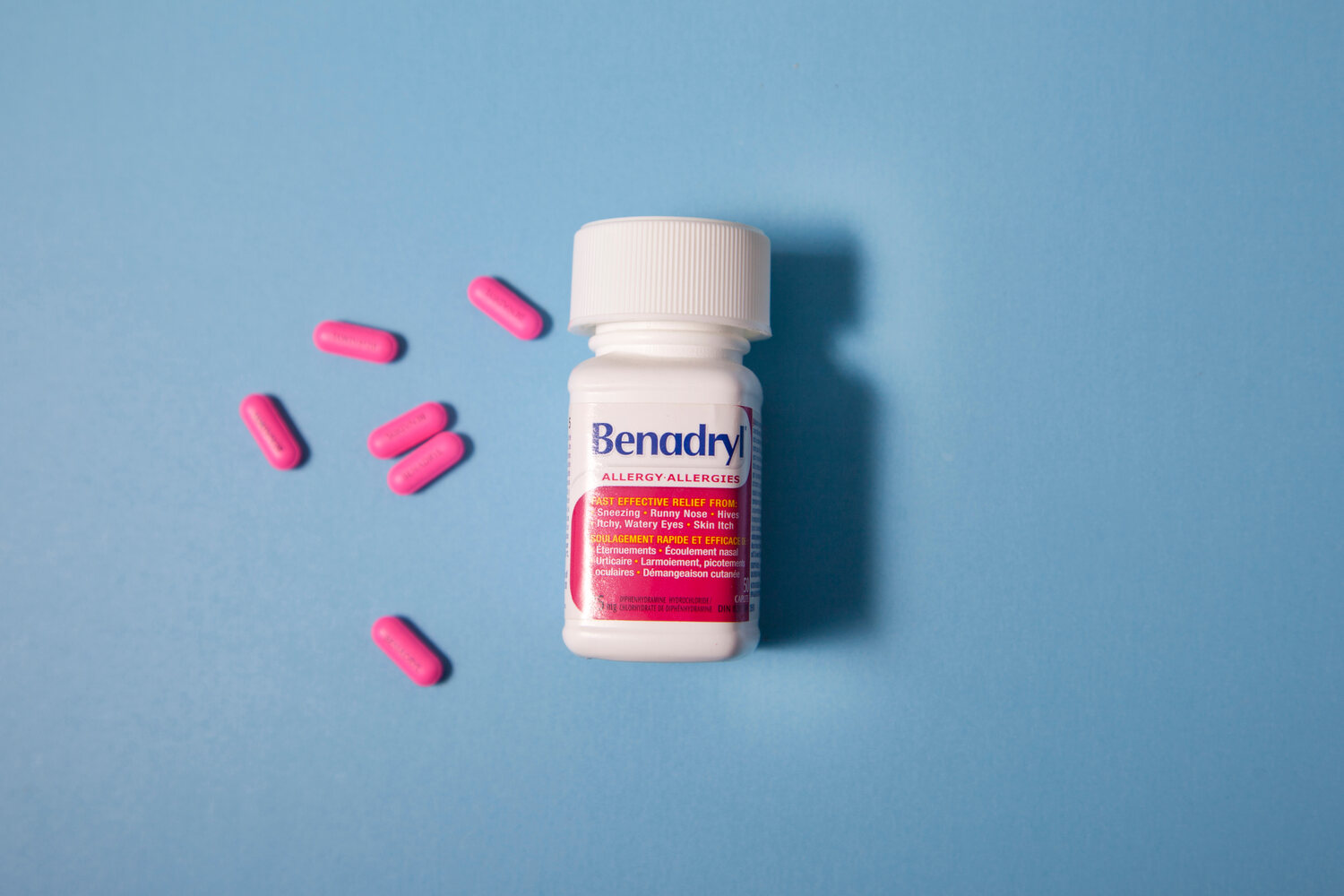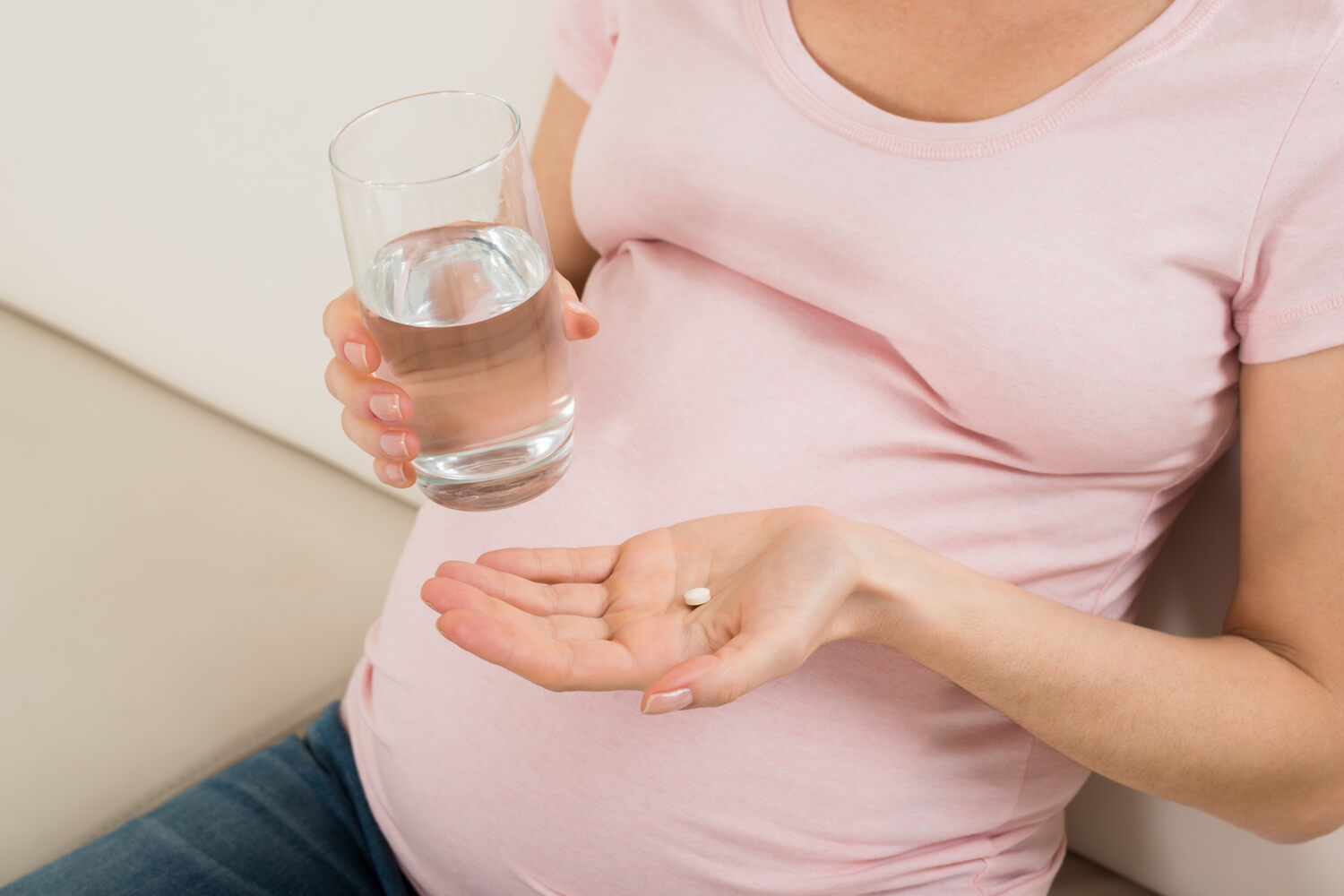 Pregnancy is a time when different types of changes take place in the body, and these can make the immune system weak, which means more chances of catching infections and bacteria. Catching a cold, sleep issues, coughing, and allergies are very common symptoms that one experiences. The doctor prescribes different types of medications during pregnancy. However, if we catch a cold or cough, we rarely prefer to visit a doctor. Instead, we always go for an over-the-counter medicine available, which in many cases, is Benadryl. Most of the time we reach for it before thinking about the safety of taking Benadryl in pregnancy.
Pregnancy is a time when different types of changes take place in the body, and these can make the immune system weak, which means more chances of catching infections and bacteria. Catching a cold, sleep issues, coughing, and allergies are very common symptoms that one experiences. The doctor prescribes different types of medications during pregnancy. However, if we catch a cold or cough, we rarely prefer to visit a doctor. Instead, we always go for an over-the-counter medicine available, which in many cases, is Benadryl. Most of the time we reach for it before thinking about the safety of taking Benadryl in pregnancy.
No doubt, Benadryl is an ideal medicine to fight coughs and colds. However, it is important to know if it is equally safe to be taken during pregnancy, as well. Continue reading to understand what Benadryl is. Find out if it can be taken during pregnancy. Find out the safe dosage, side effects, the time when Benadryl is not advisable to take, and other options for treating allergies during pregnancy.
In This Article
- What is Benadryl?
- Benadryl And Its Ingredients?
- Can You Take Benadryl (Diphenhydramine) While Pregnant?
- How Much Benadryl is Safe To Take During Pregnancy?
- Will Taking Benadryl During Pregnancy Cause Birth Defects?
- What Could Be The Side Effects of Benadryl During Pregnancy?
- When to Avoid Benadryl During Pregnancy?
- What Are Some Alternatives For Treating Allergies While Pregnant?
- FAQ’s
What is Benadryl?
Benadryl is one of the medicines that is widely used for treating cough and cold, itching problems, allergies, etc. It is even referred to as diphenhydramine [1]. Benadryl is available either in the form of a tablet or a syrup.
Benadryl And Its Ingredients
Benadryl mainly contains three ingredients:-
1. Diphenhydramine Hydrochloride is the main component responsible for treating cough.
2. Ammonium chloride which can help in reducing the phlegm
3. Ethanol (95%) – acts as a preservative for the product.
Can You Take Benadryl (Diphenhydramine) While Pregnant?

It is completely safe to take Benadryl through pregnancy, but one should first get a go-ahead from the medical practitioner. This medicine does not have any significant side effects. On the other hand, we don’t know if it is completely safe, either. So it is best to be taken at the doctor’s discretion. It is best to take all precautions during pregnancy, as it is good for both the mother and the baby.
How Much Benadryl is Safe To Take During Pregnancy?
Benadryl is one medicine that does lead to giddiness or sleepiness. Therefore, doctors advise taking 25 to 50 mg (either one or two tablets) after a gap of four to six hours. Its intake may lead to slight faintness and dizziness. Therefore, it is better to watch out for the activities done after taking it, especially driving, riding, exercising, using sharp tools, and climbing stairs. To be safe, it is best to adhere to the dosage that the doctor has prescribed.
Note – Take dose and dosage as directed by your physician only.
Will Taking Benadryl During Pregnancy Cause Birth Defects?

Benadryl comes in category B medicine, which means that they are safe but not completely. It is the Category A medicines that are the safest to consume during pregnancy. As per the reports, the intake of Benadryl rarely leads to any birth defects. Yet, sometimes overuse of Benadryl during the first trimester is found to increase the risk of a baby born with cracked lips. However, the chances of this happening are very low. Going by the above information, it is best to go by what the doctor says.
What Could Be the Side Effects Of Benadryl During Pregnancy?
Nothing in the surplus limit is good, and the same is the case with Benadryl. The intake of Benadryl during pregnancy is not always associated with a birth defect. However, an overdose of Benadryl can adversely affect the health of the mother and unborn child. Therefore, it is best to know the correct dosage. Also, it is important to stay away from activities like driving after taking it.
Benadryl could also have some side effects, and some of them are being discussed as under:
1. Brings Gastric Issues
Having headaches, tension, nausea, vomiting, and dryness are some of the signs one experiences when Benadryl is taken in excess. Constipation and stomach upset are also usually associated with this medicine.
2. Has Effects on the Nervous System
Benadryl leads to numbing qualities and results in sleepiness, giddiness and even depression in the long run. At times, even causes blurry vision, loss of hunger, nervousness, sleep issues, delusions, etc. It can also bring about confusion and disturb the coordination of the body.
3. Develops Eczema and Rashes
Too much Benadryl could make the skin hypersensitive, leading to rashes, boils, eczema, etc.
4. Cardiac Issues
Having palpitations, severe headaches, a rapid heart rate, and a pulse are some signs, one experiences with the excess of Benadryl.
5. Effects on the Fetus
Benadryl, if taken in excess, can react with other drugs that are given as a cure for anxiety and can hurt the fetus.
6. Can Bring About Birth Defects
Benadryl, if taken in excess, can lead to birth defects. Especially if Benadryl is taken in the first trimester, the risk of a baby being born with a cleft lip or palate is found to increase.
When to Avoid Benadryl During Pregnancy?
Benadryl is no doubt the ideal choice to combat colds and coughs and it is even used by a few to fight allergies and itchiness. Pregnancy, however, is a precarious time, so it is best to stay safe rather than be sorry. It is not advisable to take Benadryl if one has any of the following symptoms [2]:
- Cologne disorders
- Breathing troubles like asthma
- Gastric disorders
- Liver or kidney issues
- Urinary disorders
- Blood pressure fluctuations
- Thyroid related issues
- Loss of eyesight
What Are Some Alternatives For Treating Allergies While Pregnant?

Benadryl happens to be the most sought-after medicine, which is partially safe to take during pregnancy. However, slight chances of risk are here. So, other substitutes can. It is important to know that medications should be avoided unless very important, especially during the pregnancy phase.
Many health experts have recommended using alternative options to medicines, and some of them are given as under:
1. NetiPot
NetiPot is a method by which allergies, bacteria, a viruses can be cleared from the nasal path.
2. Wearing a Mask
Another good alternative is to put on a mask when the level of allergy is high.
3. Stay Indoors
Pregnancy is a time when many women can choose to stay indoors to avoid excessive levels of pollen in a few places.
4. Taking a Shower
The best way to keep allergens away is to take a shower before hitting the bed. Taking a shower flushes the allergens from the hair and skin, resulting in a night of good sleep.
5. Stay Calm
The best way is to keep calm and relaxed, reducing stress levels.
6. Use Saline Spray
Saline spray helps to clear the nasal path [3].
7. Be Hygienic
It is important to keep the bed sheets and bedding clean, change pillow covers, and vacuum if required to keep the allergens away.
8. Acupuncture
A few health experts also suggest acupuncture for keeping oneself relaxed and free from allergens.
Thus, as per the above understanding, it is safe to take Benadryl even during pregnancy in the right quantity and not in surplus. It is the ideal way for the treatment and cure of allergies, itchiness, and irritation on the skin, but it is recommended to always seek medical assistance before going ahead.
FAQ’s
1. Does Benadryl Cross the Placenta?
Yes, Benadryl will cross the placental barrier, but many studies say no harm is done to the baby, and it is considered safe during pregnancy.
2. Does Benadryl Help With Pregnancy Itching?
Yes, Benadryl can help with itching during pregnancy. The antihistamines in the syrup can help in reducing allergies like itching and are considered safe during pregnancy.
3. Will Take Benadryl During Pregnancy Cause Birth Defects?
All the recent studies from the research identified no relation between birth defects from using Benadryl at any stage of pregnancy.
References –
- Diphenhydramine
https://www.ncbi.nlm.nih.gov/books/NBK582675/ - Diphenhydramine
https://www.nhs.uk/medicines/diphenhydramine/ - Pregnancy week by week
https://www.mayoclinic.org/healthy-lifestyle/pregnancy-week-by-week/expert-answers/allergy-medications/faq-20058122

